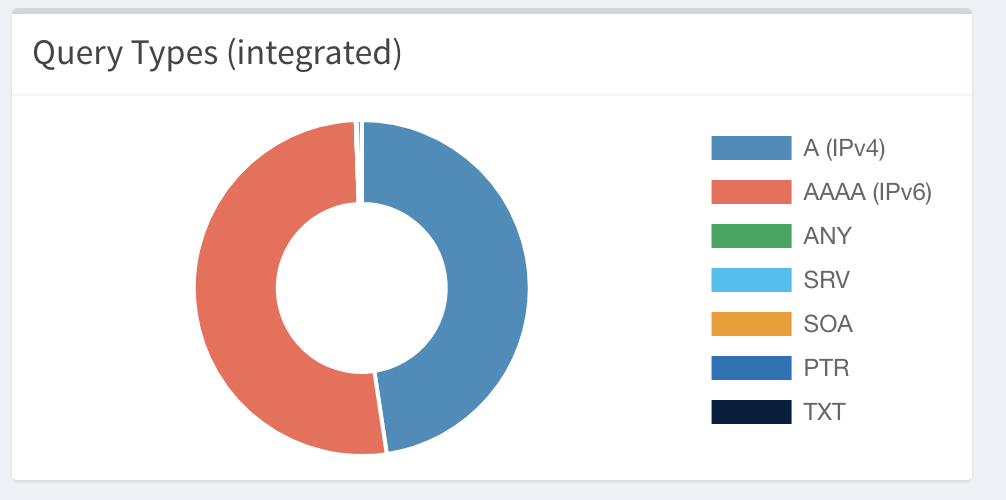Help Us Beta Test FTLDNS

In case you missed it, FTLDNS™ is Pi-hole’s Faster Than Light (FTL) daemon combined with a DNS/DHCP server (our fork of dnsmasq). So instead of installing dnsmasq as a dependency, we will be distributing all services in a single binary. This will allow us to hook into dnsmasq‘s functionality at a code- level, as well as ensuring that you are using the latest stable version of the resolver and receive, e.g., important bug fixes early on.
Today, we’re looking for some users to help us beta test the software. If you are comfortable with troubleshooting issues, and if you’re interested, run these commands (after reading the details of this beta):
echo "FTLDNS" | sudo tee /etc/pihole/ftlbranch pihole checkout core FTLDNS pihole checkout web FTLDNS
If you want to go back to the master branch at any time, the reversal process is fairly trivial:
# To Revert to master: sudo rm /etc/pihole/ftlbranch pihole checkout master # To Revert to development: sudo rm /etc/pihole/ftlbranch pihole checkout dev
Important!
FTLDNS will disable existing installs of dnsmasq (because FTLDNS is dnsmasq with special sauce thrown in, so both cannot co-exist. All of your custom configs will still work because we haven’t modified dnsmasq very much.
Verify You Have FTLDNS Installed
If FTLDNS installed correctly, dnsmasq should be disabled and replaced by pihole-FTL. Verify with these commands:
sudo systemctl status dnsmasq sudo systemctl status pihole-FTL
dnsmasq should be offline and pihole-FTL should be active.
Another way to verify you are now running FTLDNS is by checking the dashboard and looking for the nice new query types donut chart.
Finally, you can check your versions are all on the FTLDNS branches.
For Raspbian Jessie users
We have good news for you as FTLDNS (should™!) reinstate Pi-hole’s support for Debian Jessie! Note that, if you previously downgraded Pi-hole, you’ll need to run a few more commands to test out FTLDNS:
cd /etc/.pihole sudo git fetch --all && sudo git checkout master cd /etc/pihole sudo git fetch --all && sudo git checkout master echo "FTLDNS" | sudo tee /etc/pihole/ftlbranch pihole checkout core FTLDNS pihole checkout web FTLDNS
The Details
Except in special scenarios, pihole-FTL can’t share a system with dnsmasq from v4.0 onwards, since both provide the same services (DNS and possibly also DHCP) and need to bind to the same ports.
Think of FTLDNS as dnsmasq with Pi-hole’s special sauce. This allows us to easily merge any upstream changes that get added, while still allowing us to continue to develop Pi-hole as we have been.
What does this mean for you? If you already have dnsmasq installed, it will be disabled and pihole-FTL will take its place. If you have any custom config files made for dnsmasq, they will still all work (because as we mentioned, we use dnsmasq internally to provide the DNS/DHCP service). However, we do disable dnsmasq so pihole-FTL can run properly. If you have any custom scripts that use the binary name dnsmasq, they would need to be edited as pihole-FTL is your new DNS/DHCP service.
What’s New With FTLDNS?
Better performance
Since we have a closer integration with dnsmasq, we gain a performance boost by not having to read the log file.
No need for the log file
Many of you have been complaining that the heavy log writing may lead to SD card wearing-out. With FTLDNS, the log file is not needed any longer and hence this heavy disk writing is a thing of the past. However, note that during the beta phase, extensive logging actually stays enabled to ease possible debugging.
More Query Types
You’ll now be able to see all sorts of different DNS records.
and more details on the Query Log page (Reply Type, more to come)
Getting Help and Providing Feedback About The Software
We’d love to hear your feedback on the software and any bugs you may run into. We’re available on GitHub, Discourse, Reddit and Twitter.
Please tag your issues with ftldns (where available) so we know it’s related to that and not a regular issue.




Comments are closed.